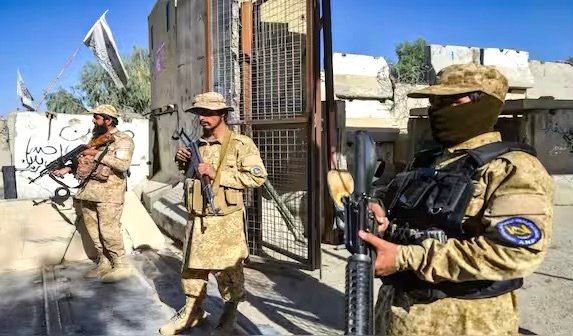Afghan and Pakistani delegations to begin peace talks following a week of intense border clashes that left dozens dead and hundreds injured—the worst violence between the two neighbours since the Taliban’s takeover of Kabul in 2021.
Both sides agreed on Friday to extend a 48-hour ceasefire for the duration of the talks, according to diplomatic sources. The negotiations aim to restore calm and prevent a further escalation along the 2,600-kilometre (1,600-mile) shared frontier.
Afghan government spokesperson Zabihullah Mujahid confirmed that discussions with Pakistan would take place as scheduled, adding that the Afghan delegation, led by Defence Minister Mullah Muhammad Yaqoob, had arrived in Doha.
Pakistan’s Foreign Office also confirmed its participation, stating that Defence Minister Khawaja Muhammad Asif would lead the Pakistani side.
“The talks will focus on immediate measures to end cross-border terrorism emanating from Afghanistan and restore peace and stability along the Pak-Afghan border,” the statement said.
Worst Fighting Since 2021
The latest clashes began after Islamabad accused Kabul of harbouring militants responsible for stepped-up attacks in Pakistan. In response, Pakistan launched airstrikes across the border, triggering fierce ground battles.
The Taliban government has denied giving sanctuary to anti-Pakistan militants, accusing Islamabad instead of spreading misinformation and sheltering ISIS-linked groups to destabilise Afghanistan. Pakistan has rejected those claims.
On Friday, a suicide attack near the Afghan border killed seven Pakistani soldiers and injured 13 others, further heightening tensions.
Kabul Condemns Pakistani Airstrikes
Despite the truce, Afghanistan’s government reported that Pakistan carried out new airstrikes just hours after the ceasefire extension.
“Afghanistan reserves the right to respond,” Mujahid said, condemning the strikes. “However, our fighters have been instructed not to retaliate to preserve the integrity of the negotiations.”
Pakistan’s military has not commented on the alleged airstrikes. According to Afghan officials, the attacks killed several local cricketers, prompting the Afghanistan Cricket Board to announce the withdrawal of its national team from a tournament in Pakistan scheduled for November.
Pakistan’s Army Chief, Field Marshal Asim Munir, urged the Taliban authorities to act against militant groups operating from Afghan territory.
“The Afghan regime must rein in the proxies who have sanctuaries in Afghanistan and are using Afghan soil to perpetrate attacks inside Pakistan,” he said during a military graduation ceremony on Saturday.
While tensions remain high, both governments have expressed hope that the Doha talks will mark a turning point toward peace and stability along one of the region’s most volatile borders.
Liberia’s Education Ministry Blocks Mandatory Drug Testing For Students
Source:Africa Publicity








